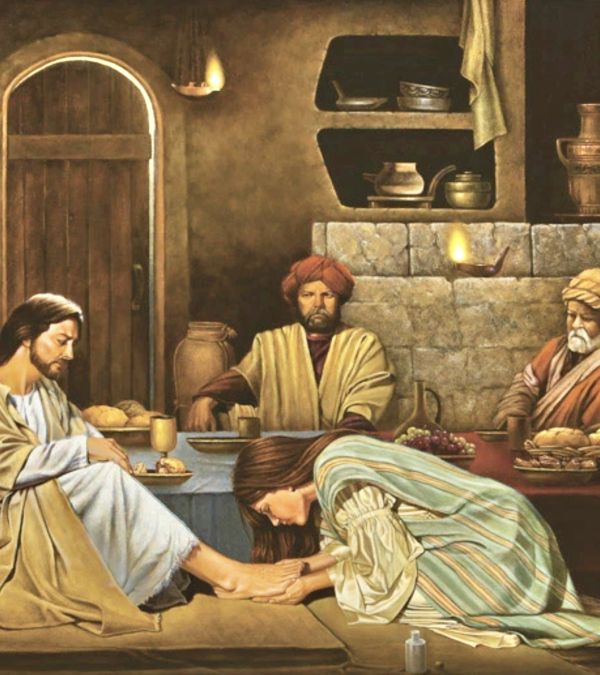After his conversion, Francis told his brothers:
«A sinner can fast, pray, weep and macerate his flesh [...] So we must glory only in this case: if we render to God the glory that is his» (FF 1105).
Which the sinful woman did well in the Pharisee's house and which the latter did not understand.
Francis and Clare, aware of the mercy God had shown them, spent their lives loving without measure, knowing that they had been graced by the Most High. Hence their living by continual acts of love towards others, kissing, bending over their neighbour's needs, forgiving.
The Sources inform about this, and, specifically, St Bonaventure tells us in the Major Legend:
"A man from the county of Spoleto, had a horrible disease that ravaged his mouth [...].
He had gone to Rome to visit the tomb of the Apostles and implore their grace. Returning from his pilgrimage, he met the servant of God, whose feet he would have liked, out of devotion, to kiss. But the humble Francis did not allow it, instead he kissed the one who would have liked to kiss his feet on the face.
As soon as Francis, the servant of the lepers, moved by his admirable piety, had touched that hideous wound with his sacred mouth, it disappeared completely and the sick man regained his longed-for health.
I do not know what to admire more, with good reason, in this event, whether the profound humility that prompted that benevolent kiss, or the splendid power that worked such a stupendous miracle" (FF 1046).
But Clare too, in the Papal Bull (Clara Claris praeclara) is contemplated thus:
"Breaking hard in the narrow solitude of her cell the alabaster of her body, she filled with the aromas of her holiness the entire edifice of the Church" (FF 3285).
"That truly pure vessel turned out to be a vessel of grace" (FF 3157).
And "very often he washed the feet of the servants* who returned from outside and, washing them, kissed them" (FF 3182).
To those who love much, much will be forgiven!
* Sisters in charge of the external service of the Monastery.












